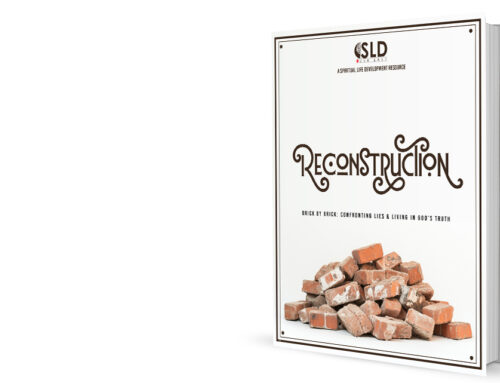 The idea of Christ being an immigrant may sound like blasphemy, but that is what Christ was. Instead of coming to earth as Creator, He chose to leave heaven and emigrate to earth as a poor human who would be born in the manger and grow up to have no place to lay his head. With this in mind, I would like to explore a new understanding of Christology from an Asian immigrant perspective. Such a view would help us to revitalize the self-identity and mission of the immigrant church in a multi-ethnic ministry context.
The idea of Christ being an immigrant may sound like blasphemy, but that is what Christ was. Instead of coming to earth as Creator, He chose to leave heaven and emigrate to earth as a poor human who would be born in the manger and grow up to have no place to lay his head. With this in mind, I would like to explore a new understanding of Christology from an Asian immigrant perspective. Such a view would help us to revitalize the self-identity and mission of the immigrant church in a multi-ethnic ministry context.
Many biblical figures, such as Abraham, Moses, Ruth, and the prophets, can serve as models of the immigrant. But our normative image or model can only be Jesus Christ, the incarnate Son of God, who is the fulfillment of God’s will and the “pioneer and perfecter of our faith” (Hebrews 12:2).
According to the first chapter of the Fourth Gospel, Jesus was a sojourner in the world. His incarnation is analogous to His immigration to this world. As John said, “the Word became flesh and lived among us” (John 1:14). The Word of Christ, who was one with God, actually came to the world. Jung Young Lee points out, “God in Christ belonged to two worlds but also was a member of neither. He was not only rejected by this world but also abandoned by the heavenly Father. Therefore, the marginalization of God took place in his incarnation.” Indeed, “Jesus the Christ emptied himself, taking the form of a servant, being born in human likeness. And being found in human form, he humbled himself and became obedient to the point of death – even death on a cross. Therefore, God also highly exalted him and gave him the name that is above every name” (Philippians 2:7-9). Christ gave up his divine nature and came to the world by taking the form of a servant. Also, Jesus, as a form of the servant, was of a marginal status, yet He was living and working for God’s glory.
As John said, “the Word became flesh and lived among us” (John 1:14).
We need to take the Incarnation of Jesus Christ seriously. The fact that his people did not receive him made Him a marginalized person in his mission context. As John said, “He came to what was his own, and his won people did not accept him” (John 1:11). During his ministry, Jesus did not confine himself to any particular socio-cultural structure or political-economic system. He was rejected and despised by the dominant groups of Jewish society. Jesus identified himself with the weak, the poor, the outcasts, and the sinners.
A helpless ethnic minority in America could identify with Jesus as the model for their status as marginalized immigrant people. When they understand that Jesus, the incarnate Son of God, was an example of all marginal people on earth, they will be able to see the meaning and even God’s purpose in their marginality. Therefore, Jesus, as an immigrant from heaven, understands the situation of every minority immigrant group in America, and He is within and among immigrants. God will sustain and complete the pilgrimage of the marginalized immigrants in the world in Jesus Christ.
While Christ, the crucified, can serve as the model of Asian immigrant suffering, His cross expresses God’s love and care for them. Love necessitates suffering on behalf of others. Furthermore, the resurrected Christ is also the model of hope and new life. He conquered sin and death through his suffering, rejection, and crucifixion, and God raised Him from the dead to be the Lord of love and justice.
In terms of the doctrines of Christ and salvation, H. Richard Niebuhr gave us the theological meaning of immigration in The Meaning of Revelation:
He [Jesus Christ] is the man through whom the whole human history becomes our history. Now there is nothing alien to us. All the struggles, searchings after light, all wanderings of all the peoples, all the sins of men in all places become parts of our past through him.
Through Christ, we become immigrants into the empire of God. We extend over all the world and learn to remember the history of that empire. That is of humankind in all times and places, as our history.
written by Major Young Sung Kim, Ambassador for Holiness, USA East SLD




